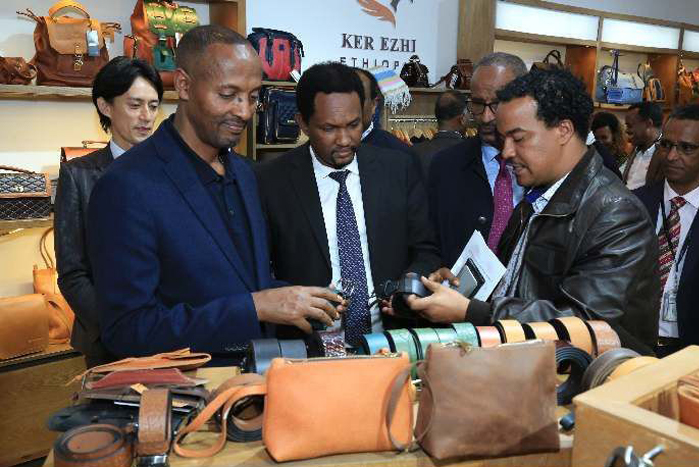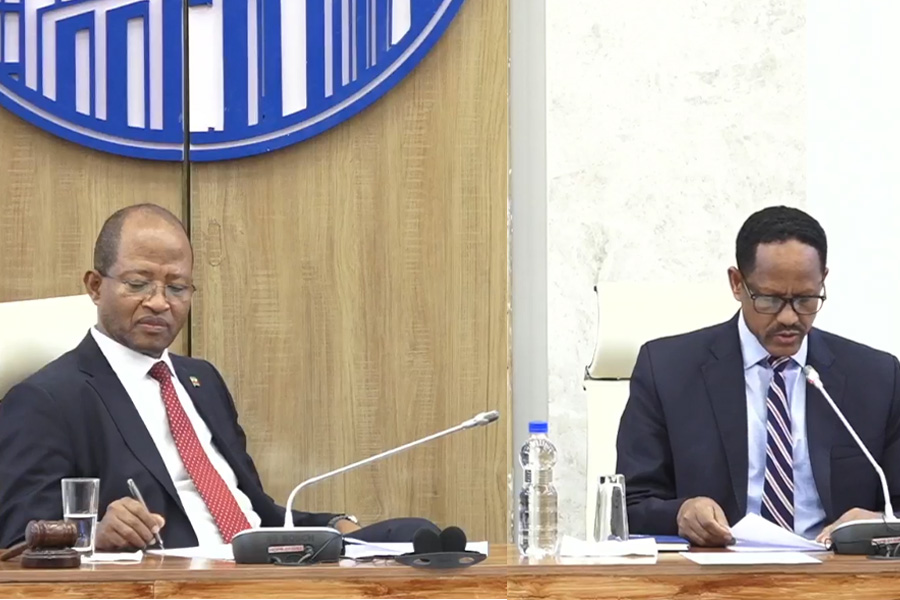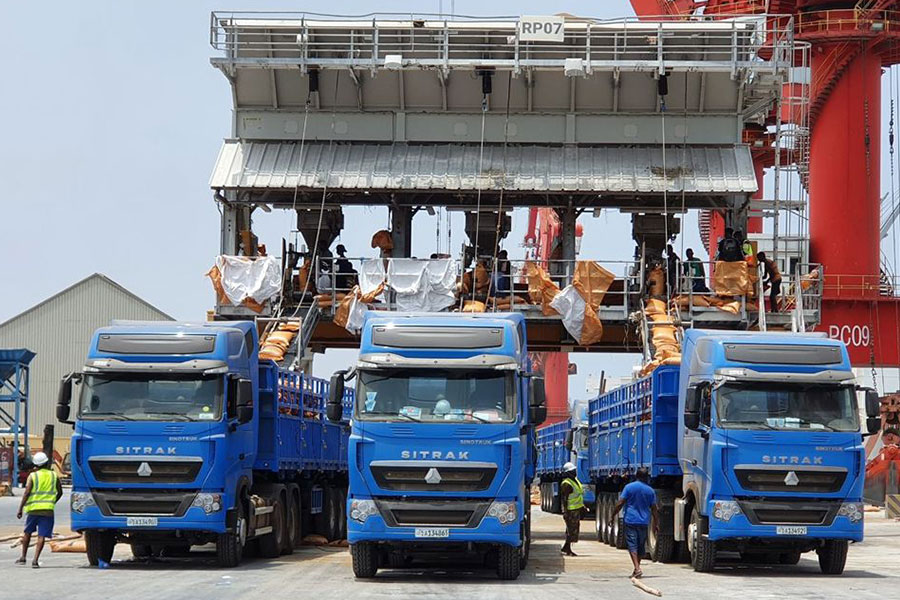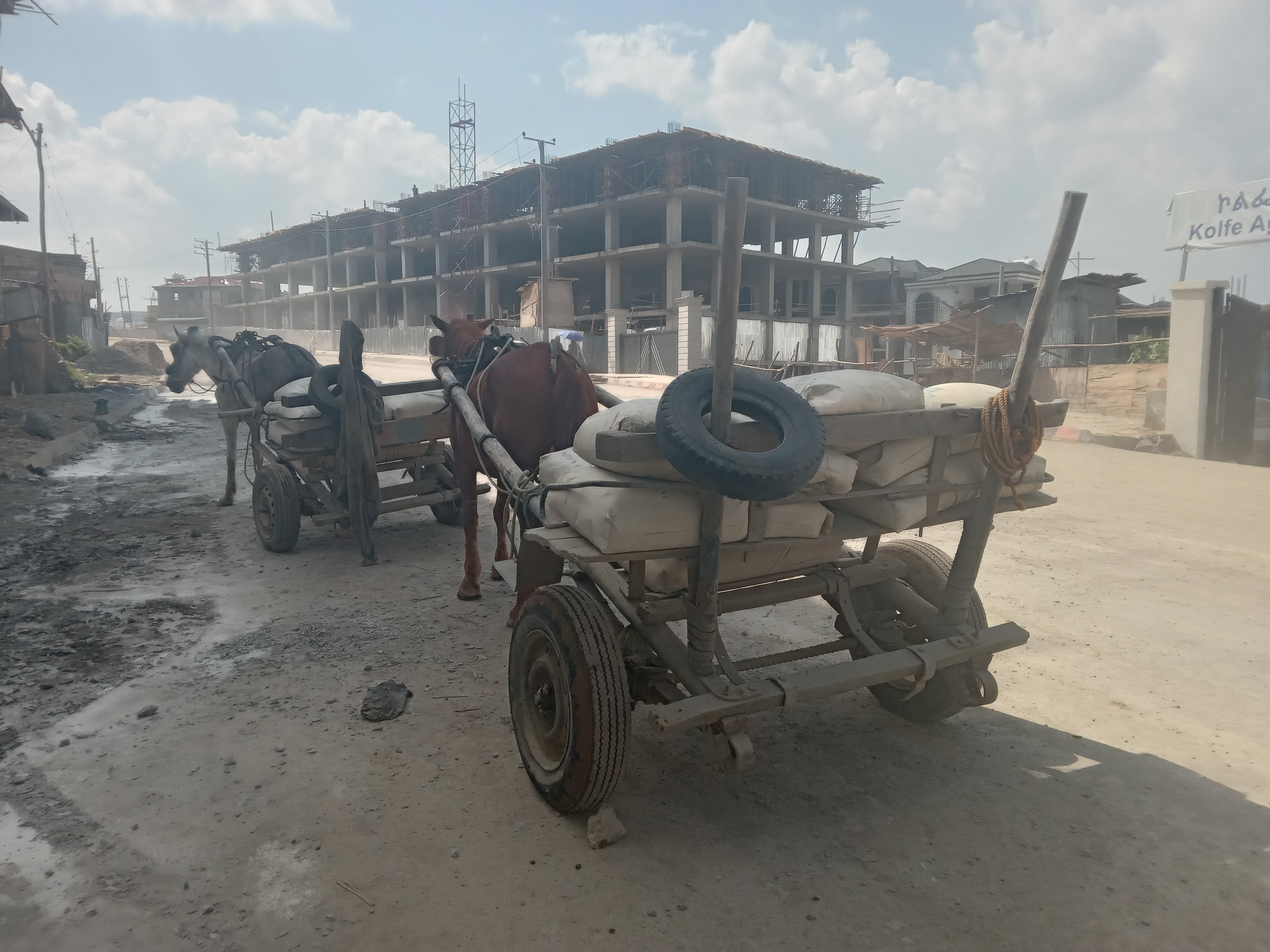
Radar | Sep 04,2022
Alcohol manufacturers including the known Balezaf and National alcohol brands are entangled in a web of macroeconomic and external pressures that have plagued their industry. Substantial price surges in raw materials, security concerns, lack of market access, and illicit traders have undermined their production and sales.
Molasses, an essential input for alcohol production, has doubled in price to 2,691 Br a quintal, while ethanol (technical alcohol) has also seen its price increase by half to 212 Br, impacting production.
Mesfin Abate, CEO of the National Alcohol & Liquor Factory and president of the Alcohol Manufacturers Association, said factories are forced to operate at low capacity while struggling to stay afloat. Established in 1905 with an annual revenue of 1.2 billion Br, the state-owned Factory has had to cut its production by half. According to Mesfin, the rise in raw material prices, security concerns, and illicit traders supplying products at cheaper prices, disrupt the market.
"The whole industry is in peril," he told Fortune.
Another prominent alcohol manufacturer, Balezaf Alcohol & Liquors Factory, has been compelled to uphold intermittent operations for the past six months, primarily due to the surge in raw material prices and lack of market access due to security concerns. According to Belay Tekle, the general manager and one of the shareholders, unprecedented price hikes of molasses, which comprises 90pc of its input, have severely impacted the production capacity.
"It's more than what we can handle," he said.
Belay notes that operational fluctuations in recent months have led to dwindling sales and revenues. Lack of market access is another concern, with 55pc of the demand in regional states, and 25pc in the Amhara Regional State, facing security issues.
"Our operation has been on and off," he said.
Spanning 38,000Sqm and employing 580 workers, Balezaf has been forced to slash its production by a quarter from its 30,000ltr capacity. This brought about a 60pc revenue decline in the past three years. Company executives then decided to double the price, which had a reverse effect on demand, declining by 30pc. Belay cites illicit marketers with low-quality outputs at cheap prices disrupting the market share of legally operating manufacturers.
"We are struggling," he said.
The industry's struggle mirrors broader challenges within Ethiopia's manufacturing sector, which remains below five percent of the GDP. Security deterioration, particularly in Oromia and Amhara regional states, has substantially affected business operations.
Alcohol manufacturers are experiencing these issues in the wake of price increases by the five sugar factories: Wonji, Metehara, Fincha, Omo Kuraz II, and III, which supply technical alcohol and molasses. They attribute their adjustment to up to 300pc production costs on their part.
Industry leaders from the 33-member strong Association have been holding prolonged discussions with the Ethiopian Sugar Industry Group (ESIG). However, they have seen little success in addressing the issue of raw material prices.
According to Reta Demeke, public relations director of the Group, the rise in prices to import machinery, coupled with foreign currency shortages, is a concern for factories. He acknowledged that sugar factories have struggled to meet supply targets in the past year. However, he attributes security issues as the major culprit. He said if economic factors and demand warrant it, they are open to considering lowering the price.
Wonji Sugar Factory supplied 10,000tns of molasses and around 300,000Qtl of sugar in the past year, falling short of its capacity by 700,000tns. Aklilu Haile, the communication director, said market access was a big issue this year, while difficulties importing spare parts and machinery have also contributed. Spanning 5,700hct, the factory faced operational disruption due to security concerns, halting operations and requiring recovery time.
"We are hanging in there," he said.
About 350Km from the capital, Fincha Sugar Factory, located in the Horo Guduru Welega Zone of Oromia Regional State, has faced similar challenges. Mengistu HaileMariam, the general manager, said high production costs, with spare parts and machinery rising by threefolds, the factory was forced to opt for price increases to curb inflation and sustain production. Fincha has supplied an average of four million litres of technical alcohol and requested price increments due to surging production costs.
"We couldn't operate with the current price," he said.
The timeline of Finchaa Sugar Factory has been marred by challenges. Suspension of operations in May 2023 left around 9,000 employees idle for seven months following an attack by armed forces causing damage worth 400 million Br. Mengistu said they have prepared a five-year strategic plan targeting the annual production of 2.7 million quintals of sugar and 20 million litres of technical alcohol, quadrupling its current production.
"We have big plans in the industry," he said.
Economists such as Arega Shumete (PhD) believe unstable policies and domestic market fragmentation have impacted the industry, increasing prices and decreasing demand. With demand concentrated in the northern part, logistics constraints have affected transaction and input costs.
"Different issues have added fuel to the fire," he said.
He observes the alcohol industry is controlled by a few, requiring government intervention to regulate market structures and profit margins and ensure long-term stability.
PUBLISHED ON
Jul 28,2024 [ VOL
25 , NO
1265]

Radar | Sep 04,2022

Radar | Dec 01,2024

Radar | Feb 18,2023

My Opinion | Apr 22,2023

Delicate Number | Nov 30,2024

Fortune News | Nov 24,2024

Fortune News | Jun 18,2022

Fortune News | Sep 29,2024

Fortune News | Mar 25,2023

Radar | May 04,2024

Dec 22 , 2024 . By TIZITA SHEWAFERAW
Charged with transforming colossal state-owned enterprises into modern and competitiv...

Aug 18 , 2024 . By AKSAH ITALO
Although predictable Yonas Zerihun's job in the ride-hailing service is not immune to...

Jul 28 , 2024 . By TIZITA SHEWAFERAW
Unhabitual, perhaps too many, Samuel Gebreyohannes, 38, used to occasionally enjoy a couple of beers at breakfast. However, he recently swit...

Jul 13 , 2024 . By AKSAH ITALO
Investors who rely on tractors, trucks, and field vehicles for commuting, transporting commodities, and f...

Jul 12 , 2025
Political leaders and their policy advisors often promise great leaps forward, yet th...

Jul 5 , 2025
Six years ago, Ethiopia was the darling of international liberal commentators. A year...

Jun 28 , 2025
Meseret Damtie, the assertive auditor general, has never been shy about naming names...

Jun 21 , 2025
A well-worn adage says, “Budget is not destiny, but it is direction.” Examining t...